

.png)
Evangelical Christians actively engage in the Human Rights Council of the United Nations, in Geneva. What is their vision? How do they work?
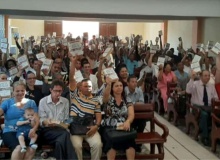
“We reject any declaration that does not respect the historic doctrines of our institution”, they say. Other denominations are also expected to leave.
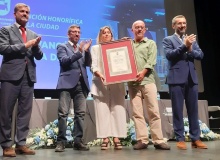
A church in southern Spain was awarded an Honourable Mention by the City Council. “The Lord blessed us today to continue blessing others”, they said.
Cropped(1).jpg)
“We regret that Geneva is trampling on its tradition of tolerance and damaging its reputation as a capital of human rights”, says an evangelical representative in the Swiss Canton.

The World Evangelical Alliance sends a report to the United Nations denouncing “how the Indian government has fostered violence and legal discrimination against religious and social minorities”.

Eleven years later, Spanish evangelicals will gather for a new Bioethics congress. Non-Christians are welcome in a programme that will address issues such as euthanasia, artificial intelligence, and creation care.
.jpg)
While the UK imposes sanctions on Patriarch Kirill for supporting the war in Ukraine, the World Council of Churches rejects a ban and hopes to see “dialogue and encounter”.

The Bill aims to allow assisted suicide for those over 75 who do not qualify to apply for euthanasia. “Government has a duty to protect its citizens”, Council says.
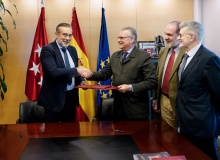
The Evangelical Council of Madrid and the regional government signed a collaboration protocol which includes Reformation Day as a relevant event in the region.
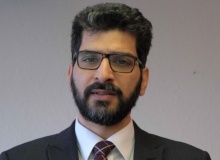
The entity representing 600 million evangelicals calls on Algeria “to end their persecution of evangelicals, rescind the unjust court sentences, and allow the churches forcibly closed to reopen”.
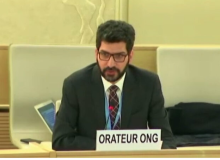
Evangelicals at the UN Human Rights Council also asked the Greek government to look for alternative religious education classes for non-Orthodox students.
.png)
Evangelicals speaking at the UN Human Rights Council also denounced anti-conversion laws in Nepal and India, while praising peacemaking efforts in Lebanon and Colombia.
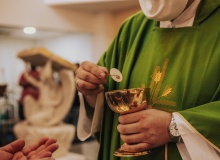
Eucharist has been elevated to a primary identity-marker: practiced, taught, protected, abused, and used for various purposes, including extra-religious ones.
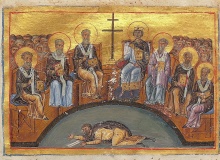
Some of the criticisms that can be made against the Acts of Nicaea II, specifically its use and interpretation of historical sources and its claim to be an ecumenical council.
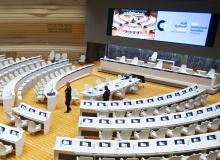
“We stand ready to support a peace and reconciliation process, particularly engaging our regional branch, the Association of Evangelicals in Africa (AEA)”, said Thomas Schirrmacher.
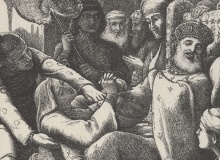
In November, a senior UN official told civil society, “You need to insist, repeat yourself, send letters to the UN, keep reminding us”.
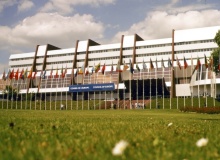
A resolution of the Council of 47 European countries recommends to focus on sexual education, online protection and security, and strong regulation.
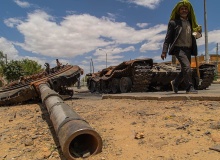
The fight between the government and Tigray's rebels remains unresolved as millions face starvation. “Our hearts weep when we see the recent situation”, evangelicals say.

The President of Westphalia Church is the second woman to chair the EKD in its history. The 14 members of the EKD Council for the next 6 years were also elected.
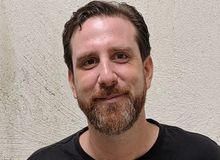
In France, the CNEF has appointed a new President to start in June 2022, while in Germany the EKD will have elections in November to choose a new Council President and governing body.
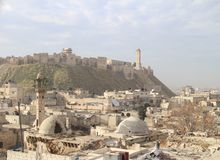
The WEA organised a virtual event to evaluate the impact of unilateral sanctions on churches and aid organizations worldwide and gives recommendations on how to overcome it.
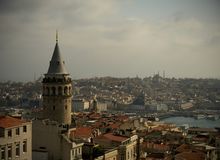
The UN has included the travel bans and deportations of Protestant leaders and the protection of religious minorities in the list of issues to be raised with the Turkish government.
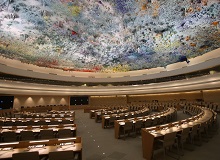
Addressing the Human Rights Council, the UN Expert backs “intersectional gender analysis”. The World Evangelical Alliance says Christians believe “human beings are created male and female” and defends the “freedom to express this belief in the public square”.
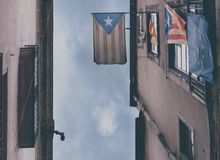
Evangelicals in Catalonia and the rest of Spain analyse the government's decision to free the convicted leaders of the Catalan independence process.
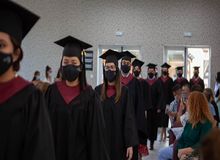
A representative of the local authorities congratulated the graduates. Spanish evangelical leaders also attended the event.

Las opiniones vertidas por nuestros colaboradores se realizan a nivel personal, pudiendo coincidir o no con la postura de la dirección de Protestante Digital.